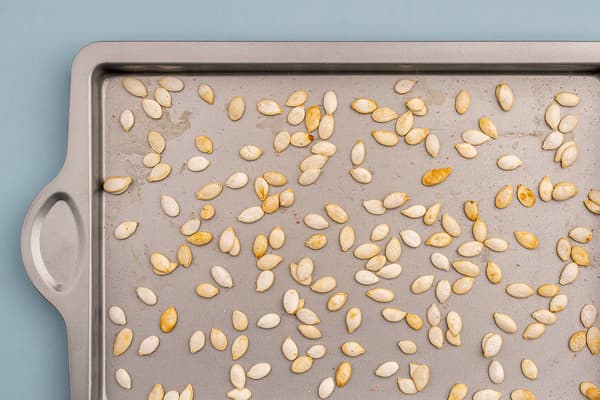4 Health Benefits of Beetroot Juice, According to Registered Dietitians
Nutrition
Three registered dietitians unpack the potential benefits that drinking beetroot juice can offer.

From stretching and foam rolling to hitting the sauna or braving an ice bath, there are a range of recovery methods athletes can try. But how about drinking beetroot juice? Read on to learn what registered dietitians have to say about the potential benefits associated with drinking the vegetable juice.
What's in beetroot juice?
"Since beetroot juice is derived from a plant, it's high in nutrient density", said Kristin Kirkpatrick, RDN. One 237 millilitre cup (approx.) includes 90 calories, 20 grams of total carbohydrates and 19 grams of sugar, Frances Largeman-Roth, RDN, said.
"Medical and athletic communities have been praising beetroot juice for years due to its abundance of nitrate, which converts to nitric oxide in the body", said Tina Ralutz, MS, RDN, CDN. "Nitric oxide aids in many body processes, including endothelial function and vasodilation [both related to cardiovascular health], mitochondrial function, muscle contraction and cognitive performance".
The juice also features betalains (plant pigments offering antioxidant and anti-inflammatory benefits), plus magnesium and potassium (minerals that support heart health), Largeman-Roth said.
How does beetroot juice boost health?
Beetroot juice can benefit bodies in multiple ways, both for overall health and athletic performance. Here's a look at just a few:
1.Decreased inflammation
The vegetable's phytochemicals can inhibit inflammatory diseases, according to a 2021 narrative review of the scientific literature. "The juice's high levels of antioxidants and polyphenols can neutralise free radicals, reducing oxidative stress and mitigating cellular damage", Ralutz said. In the liver, betalains support detoxification pathways, increasing the body's ability to process and eliminate undesirable compounds.
2.Improved cardiorespiratory endurance
During exercise, the body's demand for oxygen increases. Humans breathe deeper to supply more oxygen to the muscles, Ralutz explained. The nitric oxide produced from the abundant nitrates in beetroot juice helps make the processing of oxygen more efficient, to supply oxygen to the muscles better and improve performance.
3.Reduced muscle fatigue
Nitric oxide also "moderates the levels of oxygen and nutrients going to muscles, making them more tolerant of exercise and less likely to fatigue quickly", Ralutz said. In fact, in a small-scale 2019 study, participants who drank nitrate-rich beetroot juice for five consecutive days demonstrated less muscle fatigue than those who drank nitrate-depleted beetroot juice.
4.Lowered blood pressure
"Nitric oxide has the ability to relax blood vessels, which reduces blood pressure and increases the delivery of oxygen and nutrients to areas in the body, including muscles", Largeman-Roth said.
As a 2015 study found, this dilation (or widening) of blood vessels led to increased endurance and stamina, Kirkpatrick explained. "Because the heart had to work less, the athlete was often more likely to be able to extend the duration of activity", she said.
And a 2017 study also found that, in addition to lowering blood pressure, drinking beetroot juice for 14 consecutive days decreased LDL, the harmful type of cholesterol, in participants with untreated hypertension.
What's the best way to prepare beetroot juice?
If the beetroot you are using for juice is conventionally grown, make sure you peel them to avoid ingesting pesticides. If they are organic, you can leave the peel on. Regardless, always scrub the beetroot to remove any dirt, then rinse in cold, running water. Then, cut into smaller pieces to facilitate the juicing process.
To retain as many nutrients as possible, use a juicer with the ability to cold press. These models rely on pressure, rather than added heat or oxygen, to extract juice. In contrast, a juicer with a centrifuge—which consists of a spinning blade and mesh screen—will create heat. When heat is introduced to the raw vegetable, it can destroy precious nutrients, Ralutz said.
If you don't have a juicer, place the cut beetroot into a blender and add a bit of water. Juice them, then strain the pulp, Ralutz suggested. Adding a splash of lemon juice adds flavour, plus a bit of Vitamin C.
If you dislike the taste of the juice, consider incorporating it into a smoothie. Or, to save time and keep the carbohydrate count down, try opting for a beetroot juice powder, which you can add to water or smoothies, Largeman-Roth said. She also recommended seeking out a product made from non-GMO beetroot only—and nothing else.
When's the best time to drink it?
To enhance athletic performance by delaying the onset of muscle fatigue, try to drink the juice two or three hours before exercise, Ralutz said.
"Some studies have suggested there can be a cumulative effect when [beetroot juice is] consumed for a consecutive period of six to 12 days ahead of an event versus once right before exercising", she said.
What's the right amount to drink?
Always consult a clinician or licensed nutrition professional for the most appropriate dosage of beetroot juice, Ralutz said. That's because the amount largely depends on each person's goals and needs.
"For health-related concerns, like high blood pressure or peripheral artery disease, it is suggested that 118 millilitres (approx.) of beetroot juice twice daily can be effective at improving cardiovascular function", Ralutz said. Start with smaller doses and increase incrementally as needed.
Are there reasons to avoid beetroot juice?
Individuals with certain medical conditions may want to limit their consumption and check with a clinician or registered dietitian before starting a beetroot juice programme, Kirkpatrick said.
"It has been suggested that too much [beetroot juice] can surpass the body's threshold for nitrate, converting surplus nitrate into carcinogenic [or cancer-causing] compounds,", Ralutz said. "Research on this is limited, though, and more would be needed to say for sure".
There are several additional reasons for caution. For one, "the oxalate levels in beetroot juice can lead to kidney stone formation or further kidney dysregulation in people with pre-existing kidney conditions", Ralutz said. For context, oxalate, or oxalic acid, is found naturally in many vegetables, fruits and legumes. Consuming too many oxalates and not enough calcium can increase the risk of kidney stone formation.
Additionally, according to Ralutz, the juice can cause a rapid spike in blood glucose (sugar) levels due to its high carbohydrate content. "People with diabetes and other conditions that can change the way the body processes glucose should be careful to drink it with a meal or source of protein or fat", she said. Those with low blood pressure should also take caution, to prevent dangerous blood pressure levels, she added.
Finally, drinking the juice may lead to beeturia, a temporary condition where urine and stool can become pinkish or red, Largeman-Roth said. Although it's helpful to note this isn't a cause for concern.
Words by Dina Cheney





